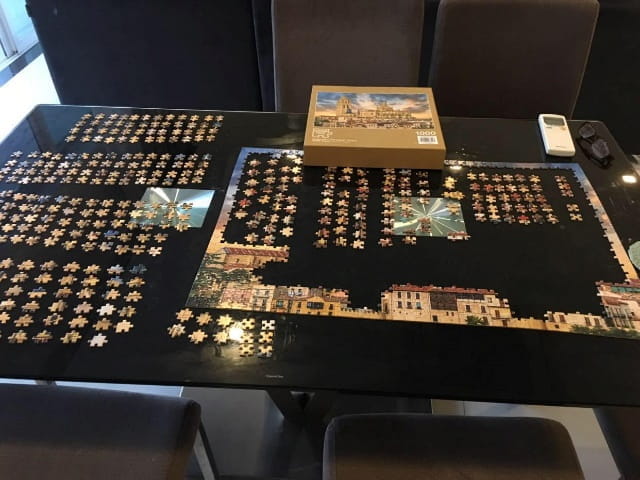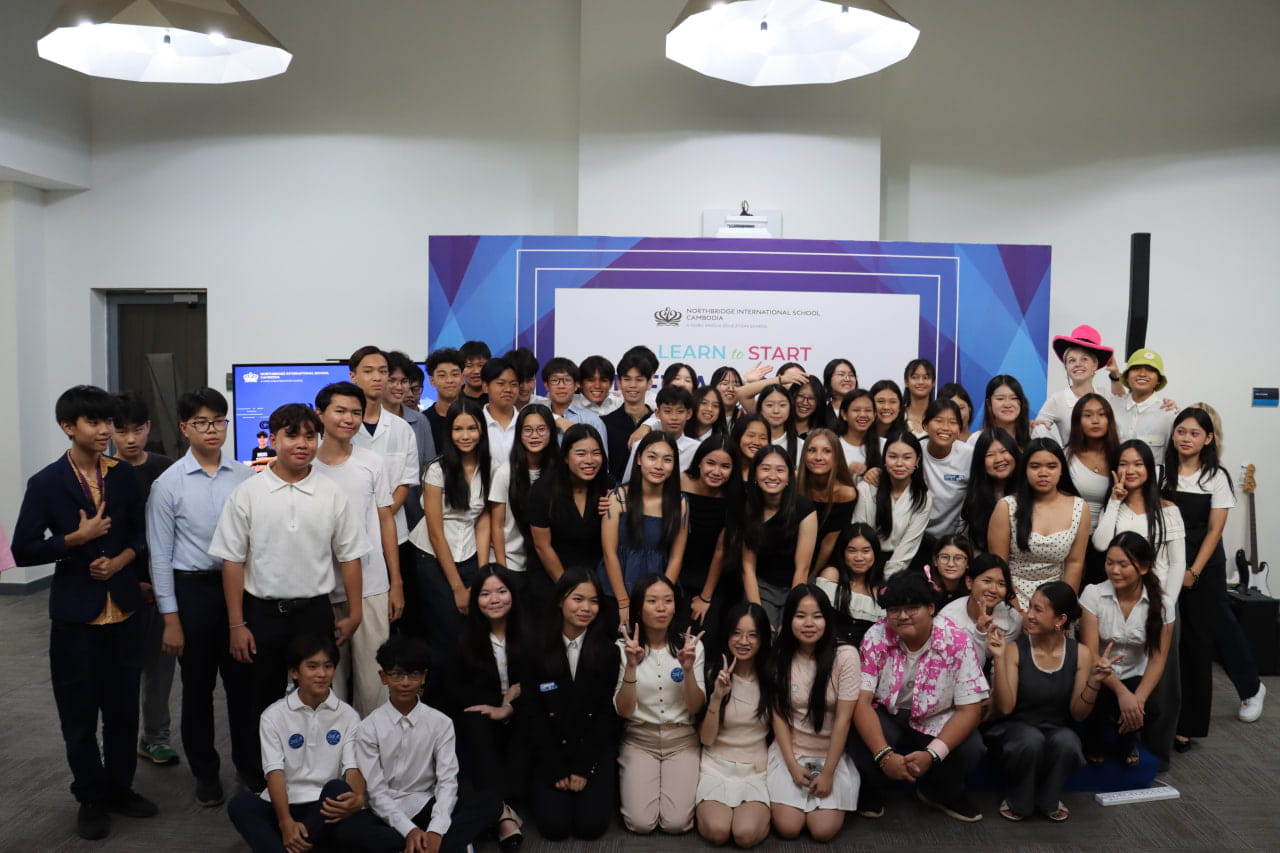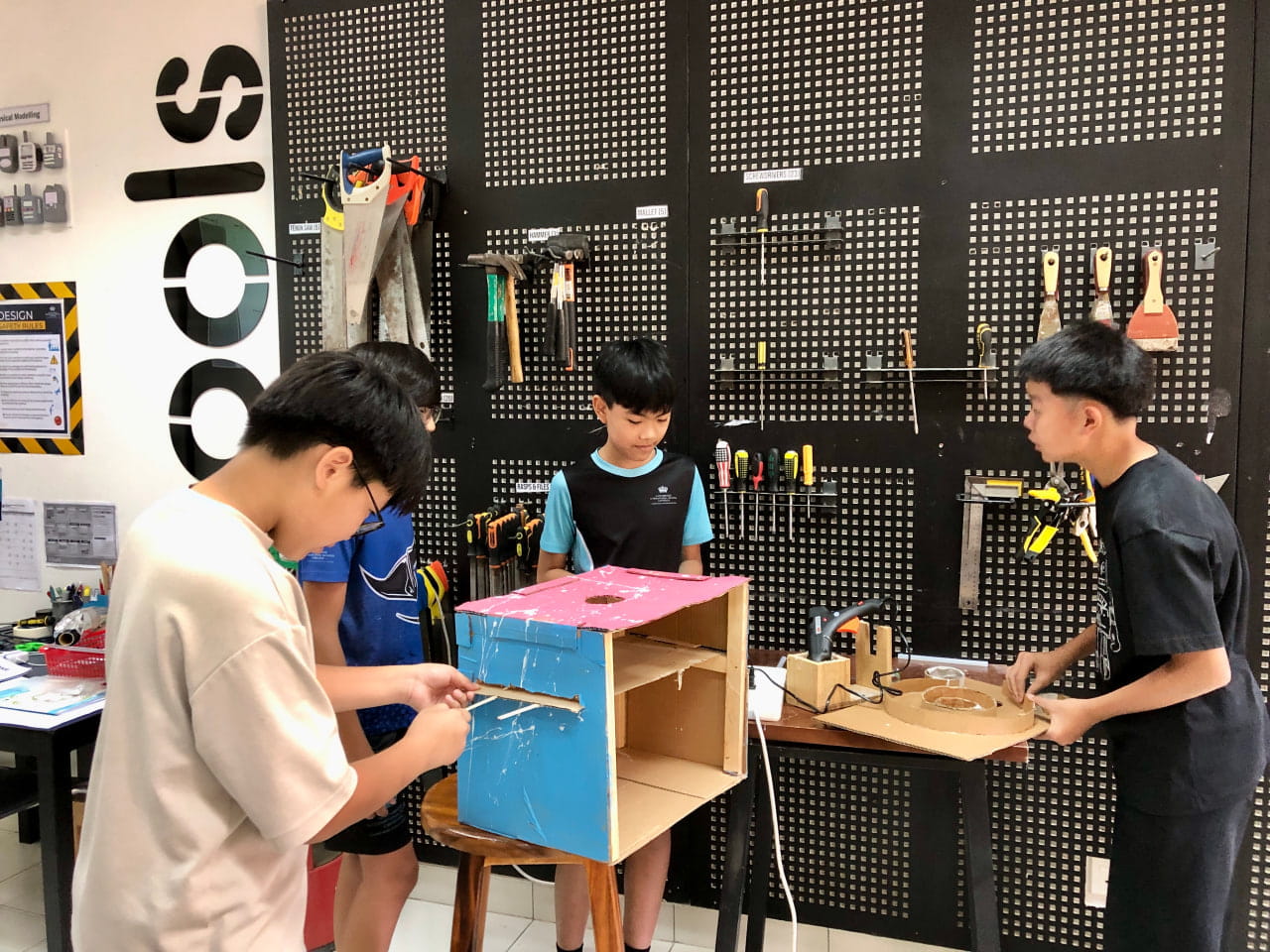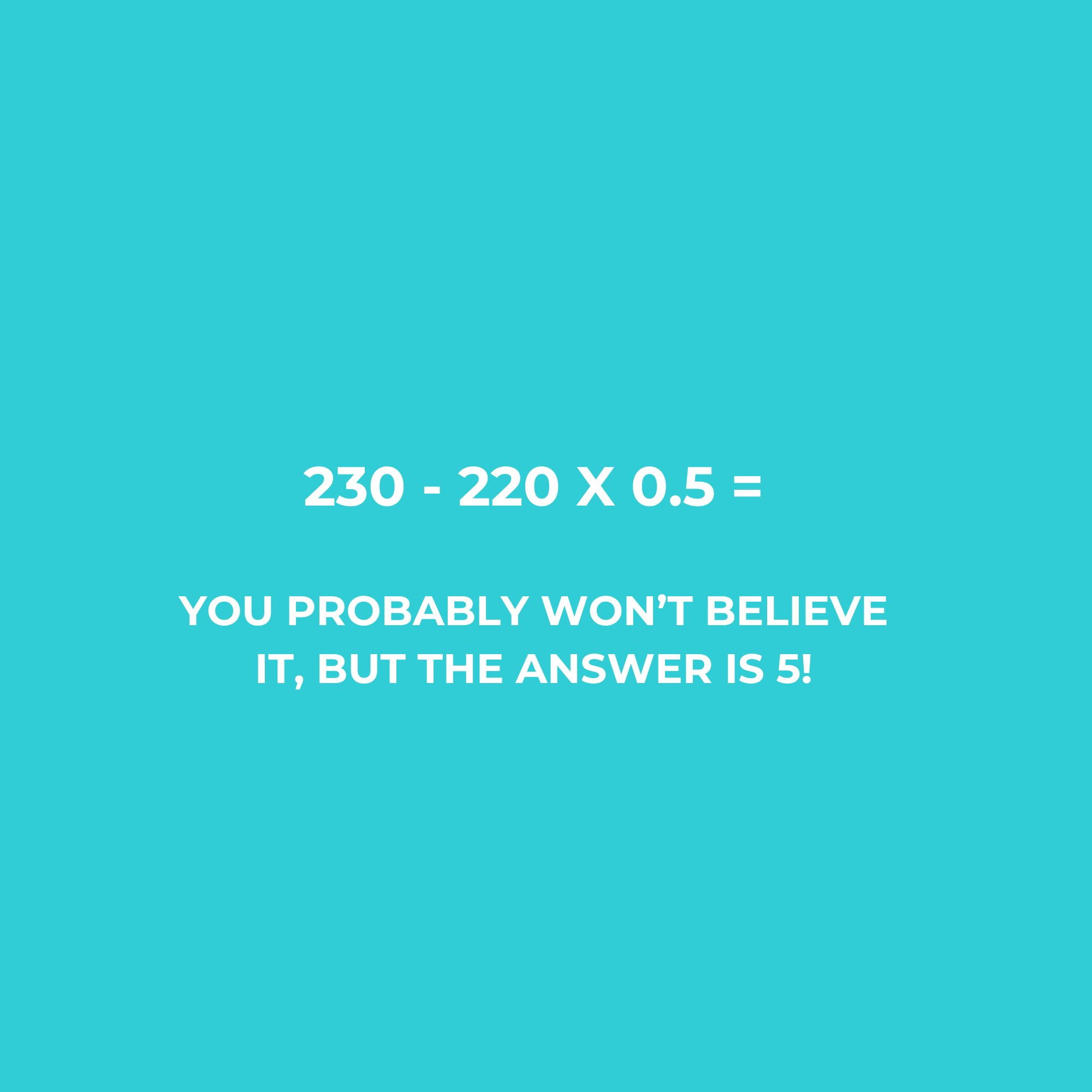There have been numerous academic studies to show that there are clear physical and mental benefits to taking the time and concentration to attempt to solve (and, of course, succeed in solving) mental challenges of all sorts. I will try to list a few at the bottom of this blog, but a cursory search will allow you to find as many as you want.
My students know that I am very interested and happy to try to solve problems as they are presented, and they have often been willing to join, to the degree they can. A simple jigsaw can be approached with confidence, because one is unlikely to be held up too long in finding its solution. But it is rewarding, nonetheless, to see the finished article. A reasonably organized approach to arranging ones thought in advance helps to bring the solution together without too much trouble.
But what if a puzzle has many more pieces to put together – how does one approach that? I would say: “Do so in the same way; organise your mind and your surroundings to remove clutter and create logic”. A thousand pieces is really only a collection of groups of 50 or 100 pieces, to my mind. In my youth I was taught a great English expression, which I hope is not lost on you: “Look after the pennies, and the pounds will look after themselves.” In other words: “from little acorns, tall oak trees grow”.
But visual puzzles are not by any means the only way forward. By now, everyone knows about sudoku, and my favourite ones are those in which you get no starting numbers at all, just irregular boxes telling you what the numbers in the boxes add up to – over to you! They are called “killer”, and not without cause! Again, a clear head, understanding the rules, and patience are the required tools to move towards a solution.
My other favourite puzzle, as the students know, is crosswords. There are crosswords which simply aim to boost your vocabulary: “A country’s central region (9). HEARTLAND”; “Surprise attack (6). AMBUSH”; “1967 film starring Dustin Hoffmann (3,9). THE GRADUATE” etc etc. However, there are much cleverer clues (called cryptic clues) which require you to do some reasoning too, and these are very rewarding when you not only find the answer but also understand WHY it is the answer.
But problem-solving using all this kind of logic can have other knock-on effects, of which I will detail one for fun and one academic. When we have the students for learning activities like the ALCs, we are always looking for ways to team-build and to make them work together.
Many of you may, therefore, know the game where students connect all their left hands, then all their right hands, then have to try to untangle themselves. It is great fun, but it also quickly tells us who are thinkers, who are leaders, who are the loud brash ones, and who are the quiet logical ones.
But seriously, if you can think clearly and logically, you can learn to relate properly abstract concepts like gravitational, electric and magnetic fields in a way which absolutely requires logical thinking, but if done properly gives a genuine insight into this highly complex DP Physics topic.





